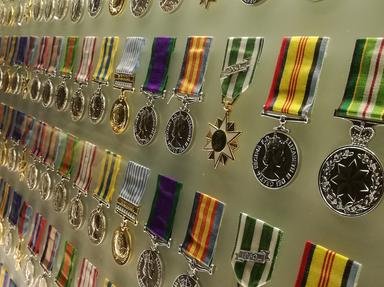Quiz Answer Key and Fun Facts
1. This ancient ruler is possibly best known as one of the greatest generals of the ancient world. Most notably, he defeated one of the known world's largest empires, and he never endured a single defeat before he died an early death at 32.
2. Over a millennium and a half later, this highly ambitious young man secured for himself Consul of his home country, and after defeating the Austrian Empire in 1800 he crowned himself Emperor. He later led the "Grand Army" on campaigns across Europe, crushing the Germans in 1805 and 1806 and creating one of the largest empires Europe had seen. Despite this, his infamously disastrous invasion of Russia crippled his once-invincible army, and he was dethroned in 1814.
3. This man was also known as a great general and politician of the ancient world. After rising to the command of general, he led campaigns against the enemies of his country to the north, defeating the barbarian ruler Vercingetorix at Alesia, annexing their lands into what was soon to become an empire. Hailed as a great hero, he returned home at the head of his fiercely loyal troops, starting a civil war that ended up with his being made a dictator. Before his rule brought about anything of note, however, he was assassinated in 44 BC.
4. A general in the period right before China's "Three Kingdoms" period, this man gained fame after securing victory at the Battle of Jiangling against an enemy force superior in number. Following this up, he was one of the principal commanders at the Battle of the Red Cliffs, contributing to the defeat of the famed strategic genius Cao Cao.
5. This general also happened to be a European king. An "enlightened despot", he inherited a highly trained and regimented army from his father. He used this army to great effect, badly humiliating his fellow German neighbors and the French in several battles during the War of the Austrian Succession and the Seven Years' war. His victories in these wars, among others, cemented his legacy for being known as one of the greatest tacticians Europe had ever seen.
6. This 20th century Field Marshal served honorably on the Italian Front of World War I as an infantry officer, being wounded in action. After the war he wrote a treatise on infantry doctrine and warfare, and served as the leader of a paramilitary organization in between wars. By the Second World War he rose to division command, leading armored advances into France, whose quick movements and surprise attacks earned the division the name of "the Ghost Division". Later leading Axis troops in Africa, he was re-deployed to command troops in Normandy prior to D-Day. Though he fought honorably, he was suspected of having been involved in the July 20 plot to overthrow Hitler, and was forced to commit suicide.
7. A career army soldier his entire life, he joined the rebelling side of a civil war after his home state (Virginia) joined the rebels. Though his first battle was a disaster, he eventually rose to the command of the rebel's principal army, winning key victories and threatening to capture the enemy's capital and win the war. Eventually he was defeated after traveling too deep into enemy territory, becoming overconfident. After surrendering his army two years later - fighting often against the men he had fought alongside in previous wars year before - he retired to a quiet life and died several years later.
8. This general is also a prime contender for one of the greatest generals before the birth of Christ. Leading an army composed almost entirely of mercenaries and diehard loyal followers, he invaded the enemy in a move that shocked nearly everyone in a feat that most considered impossible. He then went on to defeat the enemy almost flawlessly in three battles (the first, forcing the enemy to cross a river, where he then attacked; the second, ambushing an enemy army on the banks of a lake, and driving them into the water; and the third, encircling and massacring a combined enemy force). He was eventually defeated, however, several years later, and he went into exile in the Levant and then to the Sea of Marmara, where he eventually committed suicide.
9. A European king by birth, this commander had visions of grandeur for his nation, his people, and himself. His kingdom of the north engaged in a drawn-out war with its eastern neighbor, which itself was led by a legendary European autocrat bent on making his nation one of modern institutions and of undeniable power. The former monarch fought battle after battle in the northern European regions against his enemies, winning them regardless of how badly he was outnumbered. His superior leadership skills, as well as the training and equipment of his men, could not be bested. Despite this, he was defeated following a long march into enemy territory that left his men tired and sick. He died nine years later, never able to retake the supremacy that his nation once had.
10. This modern-era general is often regarded as one of the greatest generals of the 20th century. Rallying his nation's forces when the enemy was at the gates of the capital, he organized the counterattack that pushed them away, and over the next three and a half years, he, a master of logistics, organized and executed offensive after offensive against the enemy's crumbling resolve. Eventually, when his troops reached the gates of the enemy's capital, there was no one that came to its rescue; the city fell, and he played an absolutely critical part in his nation's contribution to this worldwide victory.
Source: Author
MastahCheef117
This quiz was reviewed by FunTrivia editor
bloomsby before going online.
Any errors found in FunTrivia content are routinely corrected through our feedback system.

